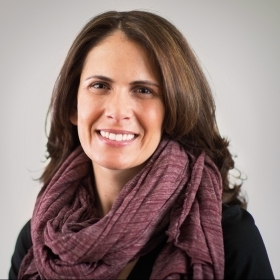Ruth Tumen Wilf ’52
When Ruth Tumen Wilf ’52 celebrated her 70th birthday, she thought her age was “a big fat joke.” But when her 80th birthday rolled around, she wasn’t laughing anymore.

When Ruth Tumen Wilf ’52 celebrated her 70th birthday, she thought her age was “a big fat joke.” But when her 80th birthday rolled around, she wasn’t laughing anymore. “I was embarrassed,” she remembers. “I thought, ‘They’ll think I’m brain dead or something.’”
For Ruth, a midwife, that birthday fell during a national conference she was chairing for the Coalition to Improve Maternity Services, one of several maternal health organizations she is involved in at a leadership level.
But if Ruth was hoping the day would pass unnoticed, she could not have been more wrong. Her colleagues feted her with “Happy Birthday,” poems, and a cake in the shape of a hugely pregnant woman—an appropriate tribute for someone who has helped women take charge of their own birthing process for 50 years.
Ruth’s career path began, fittingly enough, with the birth of her first child. A zoology major at Wellesley, she married Herb Wilf, a math major at MIT, and they started a family right after graduation, when both were embarking on graduate degrees at Columbia.
She recalls the birth of their daughter, Susie, in 1953, as “the epiphany of my life.” At that time, many women were given drugs to make them practically unconscious during labor, but Ruth wanted none of that. “I just had this belief that [natural childbirth] was the right thing, and it was amazing and wonderful and thrilling and a huge sense of achievement,” she says.
Over the next decade—after earning a graduate degree in biology and having two more children—Ruth found her mission: helping other women find the same self-actualizing experience in childbirth. The natural childbirth movement was just getting started in the early 1960s, and she was right at the center of it, teaching childbirth education classes in Philadelphia and participating in several new national organizations.
Then, in 1967, Ruth and her family spent a pivotal year in London while Herb was on sabbatical from the University of Pennsylvania. She took classes at the National Childbirth Trust and volunteered through the Royal College of Midwives, supporting many women through labor at a hospital in the East End of London, the same neighborhood depicted in the hit television series Call the Midwife. “The show is one million percent accurate,” says Ruth.
Upon her return to the States, she helped open a maternity hospital with the first nurse-midwives in the area in Philadelphia in 1971, followed by another in New Jersey. Along the way, she earned her nurse-midwifery degree from SUNY Downstate, and she has been working as a midwife and training other midwives ever since.
She practices three days a week at the Birth Center in Bryn Mawr, Pa., and she is still as fired up about childbirth as ever. “I feel very passionately that the midwifery model is the correct model for maternity care,” she says. “It has to do with health rather than illness. We don’t do a lot of unnecessary interventions. If it ain’t broke, don’t fix it.”
Although she stopped catching babies about 10 years ago, it was not because she was “brain dead.” Rather, she scaled back her on-call hours to accommodate her expanding leadership responsibilities—and to spend more time with her husband, who had been diagnosed with ALS and died two years ago.
This year, her 83rd, she is no longer self-conscious about her age, nor does she show any sign of slowing down. “My picture of somebody who was 80 was not me,” she laughs. “I played tennis this morning. I did a three-hour talk with student nurses who came to visit the birth center. Tomorrow I have office hours.”


